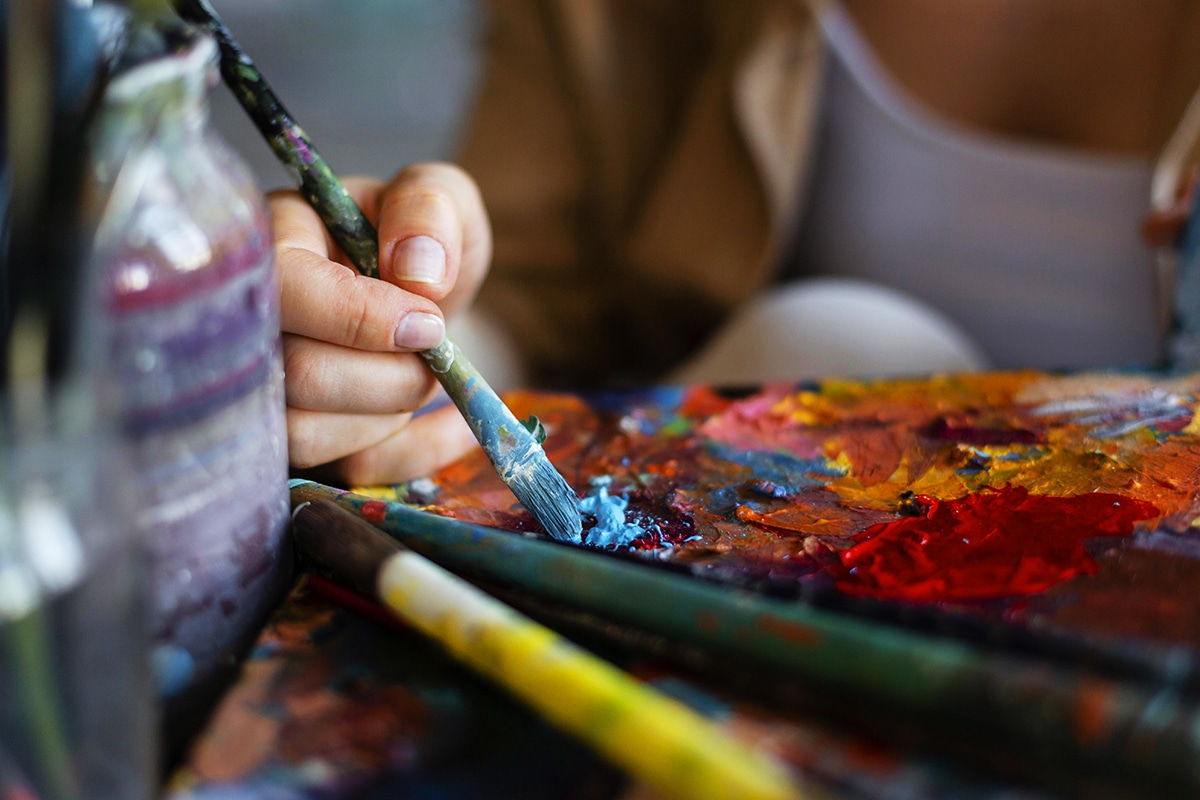Creativity is the backbone of innovation and progress. Whether you are an artist, a writer, or an entrepreneur, the ability to think creatively and solve problems is crucial for success. However, many people believe that creativity is a gift that only a lucky few possess, and that it cannot be learned or taught. This is a myth because creativity is a skill that can be developed and nurtured like any other.
Art education is one of the most effective ways to unlock and develop creativity. Unfortunately, this subject is often neglected in schools and universities, and seen as a frivolous luxury that has little practical value. However, research has shown that art education is not only essential for personal growth but also for success in one’s career and in life in general.
The Benefits of Art Education
Art education is not just about learning technical skills and creating beautiful works of art (although that is certainly important). It also provides numerous benefits that extend far beyond the canvas or the screen.
1. Improved Creativity and Problem-Solving Skills
Art education promotes creativity by encouraging students to think outside the box and come up with innovative solutions to problems. It also teaches them how to experiment, take risks, and learn from mistakes. All of these skills are transferable to other areas of life, such as business, science, and technology.
2. Enhanced Visual Literacy and Communication Skills
Art education helps students develop their visual literacy, which is the ability to understand and interpret visual information. This is an important skill in today’s world, where we are bombarded with images and information from all directions. Furthermore, art can help students develop their communication skills by teaching them to express their thoughts and ideas effectively through visual means.
3. Increased Cultural Awareness and Empathy
Art education exposes students to different cultures and perspectives, helping them develop a greater understanding and appreciation of diversity. It can also foster empathy by encouraging students to put themselves in someone else’s shoes and create art that reflects their experiences and emotions.
4. Improved Mental Health and Well-Being
Art education has been shown to have numerous mental health benefits, including reduced stress, improved mood, and increased self-esteem. It can also be a powerful tool for self-expression and self-discovery, helping students explore their thoughts and emotions in a safe and supportive environment.
The Importance of Art Education for Personal Growth and Success
Art education is not just a nice-to-have; it is essential for personal growth and success. Here are just a few reasons why:
1. Creativity is a Key Skill for the Future
In today’s rapidly changing world, creativity is more important than ever. As automation and artificial intelligence become more prevalent, many routine jobs will become obsolete, leaving only jobs that require creativity and problem-solving skills. By developing these skills through art education, students will be better equipped to thrive in this new economy.
2. Art Education Fosters a Growth Mindset
Art education teaches students that creativity is not a fixed trait; it can be developed and improved over time. This fosters a growth mindset, which is the belief that one’s abilities can be developed through dedication and hard work. This mindset is essential for success in any area of life, as it encourages persistence and resilience in the face of challenges and setbacks.
3. Art Education Enhances Critical Thinking Skills
Art education requires students to analyze and interpret visual information, make decisions about color, texture, and composition, and evaluate their work critically. These skills are transferable to other areas of life, such as business, science, and technology, where critical thinking is essential for success.
4. Art Education Teaches Collaboration and Teamwork
Art education often involves working collaboratively with others, whether it is through group projects, critiques, or exhibitions. This teaches students how to communicate, compromise, and work together towards a common goal. These skills are invaluable in today’s workplace, where teamwork and collaboration are essential for success.
Tips for Developing Your Creative Skills
If you want to unlock your creativity and reap the benefits of art education, here are some tips to get you started:
1. Practice Regularly
Like any skill, creativity requires practice. Make time for it in your daily routine, even if it’s just for a few minutes a day. Experiment with different mediums and techniques, and don’t be afraid to make mistakes.
2. Set Realistic Goals
Set realistic goals for yourself, whether it’s to create a certain number of pieces of art in a month or to learn a new technique. This can help you stay motivated and on track.
3. Seek Feedback
Seek feedback on your work from others, whether it’s from a teacher, a colleague, or a friend. This can help you identify areas for improvement and give you new ideas to explore.
4. Embrace Failure
Don’t be afraid to fail. Failure is an essential part of the creative process, and it often leads to breakthroughs and new discoveries. Embrace it, learn from it, and keep going.
Conclusion
Art education is not a luxury; it is essential for personal growth and success. By developing creativity, problem-solving skills, visual literacy, and empathy, students are better equipped to thrive in today’s rapidly changing world. If you want to unlock your creativity and reap the benefits of art education, start by practicing regularly, setting realistic goals, seeking feedback, and embracing failure. Your creativity is a gift that can be nurtured and developed; don’t let it go to waste.
